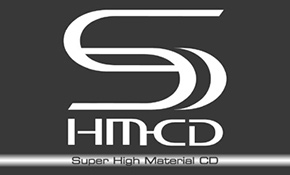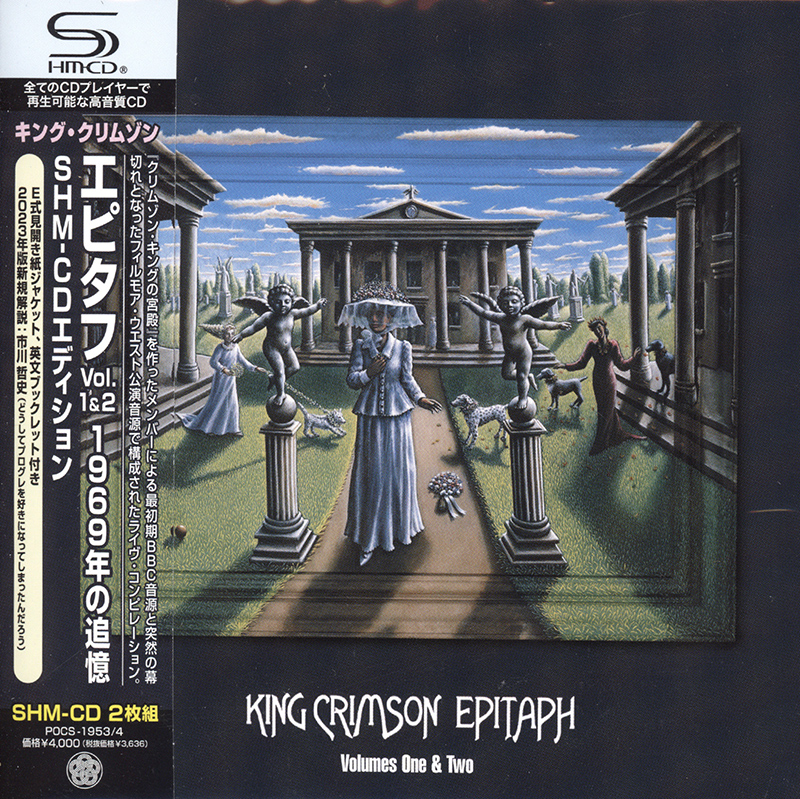Logowanie
Dziś nikt już tak genialnie nie jazzuje!
Bobby Hutcherson, Joe Sample
San Francisco
SHM-CD/SACD - NOWY FORMAT - DŻWIĘK TAK CZYSTY, JAK Z CZASU WIELKIEGO WYBUCHU!
Wayne Shorter, Freddie Hubbard, Herbie Hancock, Ron Carter, Elvin Jones
Speak no evil
UHQCD - dotknij Oryginału - MQA (Master Quality Authenticated)
Chesky! Niezmiennie perfekcyjny
Winylowy niezbędnik
ClearAudio
Double Matrix Professional - Sonic
najbardziej inteligentna i skuteczna pralka do płyt winylowych wszelkiego typu - całkowicie automatyczna
King Crimson
Epitaph - Volumes 1 & 2
- King Crimson - group
EDYCJA LIMITOWANA
Epitaph, Vols. 1-2 Review by Lindsay Planer [-] This two-disc archival set includes live performances from the short-lived incipient 1969 incarnation of King Crimson. After months of arduous sonic restoration -- or what Robert Fripp (guitar) refers to as "necromancy" -- the results are well worth the painstaking processes involved. The first volume contains material from three different sources -- BBC Radio Sessions, the Fillmore East in New York City, and its Bay Area counterpart, the Fillmore West. The second volume consists of nearly another hour-long set from the latter venerable San Francisco venue. Joining Fripp are Ian McDonald (flute/sax/mellotron/vocals), Greg Lake (bass/vocals), Michael Giles (drums/percussion/vocals), and the only non-performing member, Peter Sinfield (words/illuminations). They single-handedly fused electric rock music with jazz in a way that no one else has done before or, arguably, since. Each of the respective series of recordings incorporates their genre-defining debut LP In The Court Of The Crimson King (1969) as well as a selection of well-chosen and adeptly executed covers ranging from the full frontal assault of Holst's "Mars" -- which became the zenith of the group's live shows -- to the alternately free jazz worked into their wigged-out interpretation of Donovan's "Get Thy Bearings." Although the cuts from the album are pretty close to their studio renderings, there are a few notable differences -- such as the alternate early lyrics to "Epitaph," and the absence of the second coda of feedback during the end of "21st Century Schizoid Man." Conspicuously missing from the disc are concert versions of "I Talk To The Wind" and "Moonchild" -- the latter of which is rumored to have never been performed by the band at all. Words fail when attempting to describe the frenetic synergy that these musicians share. At times the music seems to play the participants in a tidal wave of communal inspiration. There are more instances of that interaction than not, and Epitaph Live In 1969 (1997) consists of over two solid hours of these incendiary moments. Interested parties should note that two additional volumes are available via the Discipline Global Mobile website. These are no-fi audience tapes from the 1969 Plumpton Festival (August 9, 1969) and the Chesterfield Jazz Club (September 7, 1969) respectively.
 Płyty SHM-CD do odtworzenia we wszystkich typach czytników CD oraz DVD. Gwarantują niespotykaną wcześniej analogową jakość brzmienia, odwzorowują wszystkie walory taśmy-matki. Zdaniem specjalistów - ten nośnik i ta technologia najlepiej - bo natywnie, przenosi na krążek CD wszystkie walory nagrania analogowego. |


































